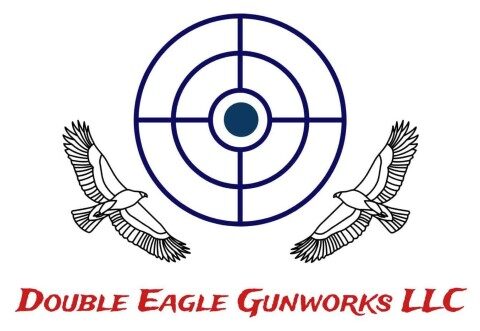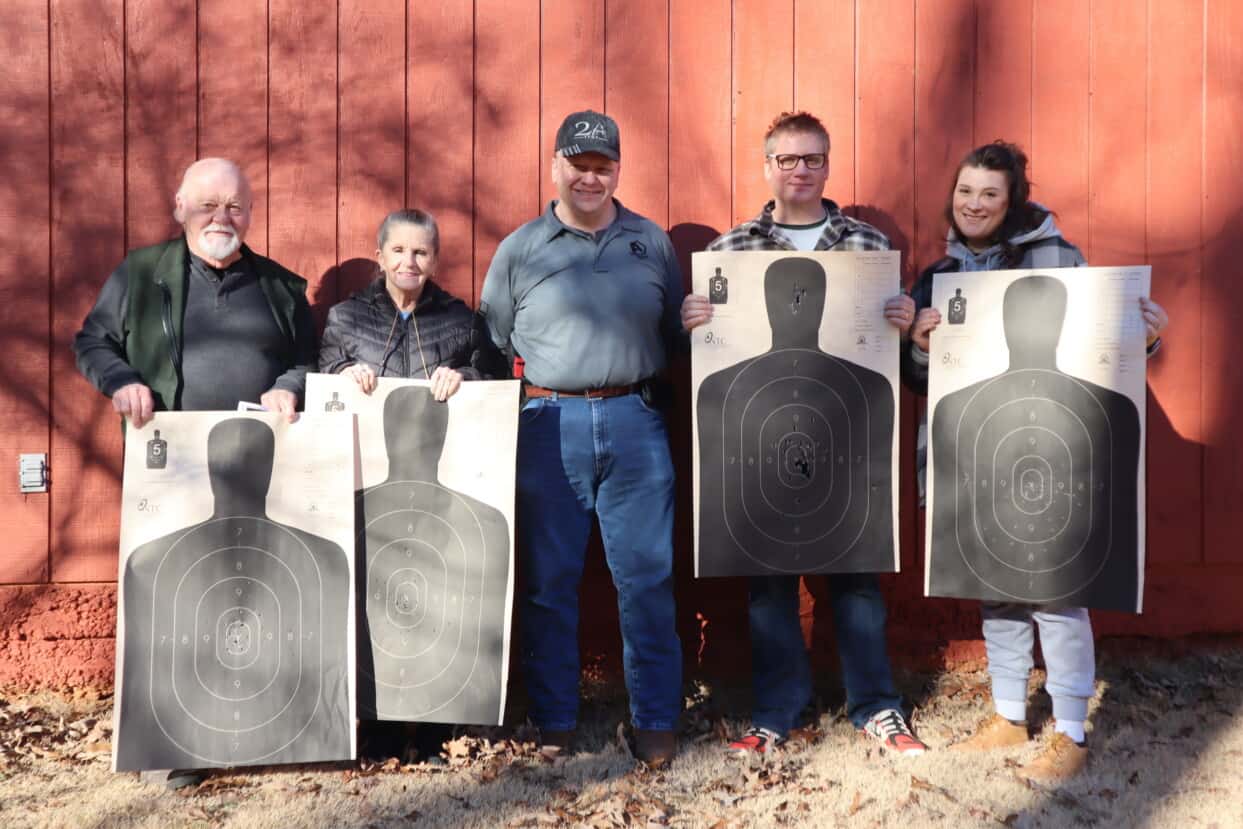Note: South Carolina now has permitless carry. You don’t have to have a permit to carry, but you do need a permit to get reciprocity when you visit other states that honor South Carolina’s permit.
On May 17, 2021, Governor McMaster signed the new open carry law in South Carolina. The provisions of the law went into effect after August 15, 2021. Read on to find out what the new law means for citizens of South Carolina.
Our state legislators passed the Open Carry bill and Governor McMaster signed it. South Carolina Law Enforcement Division (SLED) has implemented it as if August 15, 2021. Here are the details:
- The $50 licensure fee went away
- You still need a background check
- You still need to take a Concealed Weapons Permit (CWP) class
- You still need to pass a written test
- You still need to qualify with live fire
- The CWP instructor has the option of lowering the number of live rounds to 25
- Those who have waited to turn in their applications will be subject to the new requirements
- 4 additional topics were added to the CWP course to ensure safe open carry
- You have the option to carry openly or concealed
- All other rules continue to apply
- You still cannot carry in government buildings and other gun free zones
- Businesses still have the option to disallow concealed or open carry on their premises
The $50 CWP Permit Fee Went Away
New CWP applicants do not have to submit a $50 fee with their application. Existing CWP holders do not have to pay a renewal fee.
You Still Have to Have a Background Check
Our students have been able to get their fingerprints and background check without paying a fee to the system. You do have to make an appointment for the fingerprinting at sled.sc.gov.
You Still Need to Take a CWP Class
Open carry is not the same as Constitutional carry. You can carry your weapon without concealing it, but you still need to get a permit first. Unless you are active military, that means taking a CWP class.
There Is a Written Test to Get a Permit in South Carolina
The CWP curriculum in South Carolina includes a written test. The current version is 50 questions that are specifically addressed in the course material. No new version has come out as of this writing but the next one will likely include a few new questions on the subject of open carry.
You Have to Qualify With Live Fire to Get a Permit
The old law requires each applicant to fire 50 rounds, with 35 of them landing in the specified area of the target. The new law allows the CWP instructor to lower the requirement to 25 rounds if the student is performing satisfactorily.
We have had a number of students do very well qualifying during the CWP class even though they have never shot before. If that sounds like too much pressure, we encourage you to schedule a private lesson before you take the class. You can spend an hour or two with your instructor getting to know the gun and practicing your shooting without having to worry about qualifying.
The Instructor Has the Option of Lowering the Requirement to 25 Rounds
Quite a few of our students have made a perfect score on their qualification shooting. If your instructor finds that you are an excellent and safe shot, he or she has the option of stopping after 25 rounds.
If you are brand new or your skills are rusty, you might need all 50 rounds to ensure that your technique is up to par. That’s not an insult to your character. It is a way to make sure that you are going to be safe when you carry your weapon. With gun safety there is no room for compromise.
The New Law Adds 4 New Subjects to the CWP Course Syllabus
Because open carry comes with new risks, lawmakers have added four topics to the checklist of things you must know to get a license to carry a weapon in South Carolina.
Properly Securing a Firearm in a Holster
Concealed carry generally is not as comfortable as open carry, so the prior conversation was all about how to carry safely and securely without poking yourself in the side. Now that you can carry openly, the discussion has broadened to include how to ensure that the holster you choose will retain your gun.
“Cocked and Locked” Carrying of a Firearm
The term “cocked and locked” refers specifically to a 1911-style gun. In order for the gun to be ready to fire as soon as you draw it, you have to know how to use the safety. Your instructor will go over this with you in class.
How to Respond to a Person Who Attempts to Take Your Firearm From Your Holster
Knowing when to switch to concealed carry is another important skill. You want to be judicious about allowing the world to see your weapon. Aside from the people who will call the police every time they see someone with a gun, you have the folks who would like to take your gun away from you. Your instructor will discuss what you need to do when someone comes at you with the intention of disarming you.
De-escalation Strategies and Techniques
The best way to win a gunfight is to avoid being in one. Your instructor will equip you with methods to diffuse a testy situation without having to draw your gun.
You Can Still Carry Your Weapon Concealed
Prior to the new law, you were required to conceal your weapon to comply with South Carolina Law. Now you may carry openly in specific situations. You don’t have to carry openly, and I don’t recommend carrying openly for most people most of the time because you lose the element of surprise.
Carrying openly is announcing to the world that you are armed. That may deter some crime, but it also attracts attention that you may not want.
All The Other Rules of Concealed Carry Still Apply
Even though you are longer in danger of prosecution if you accidentally show your gun when you bend over, you can still get in trouble for brandishing a gun.
Having a gun visible on your person means that you have declared your ability to use force. Everything else you do will be seen through the lens of the nonverbal statement you have already made.
It is generally a good idea to avoid making implied or open verbal threats in the course of your interactions with others. The gun sitting on your hip adds an exclamation point to anything you say, so speak carefully.
Whatever else you do, don’t take that gun out of its holster without being very certain that your decision is justified. Pointing a gun at someone who is not a threat is still a crime and could very well end in serious injury or death, and jail time.
The New Law Does Not Remove Gun Free Zones
Open Carry in South Carolina does not erase the restrictions on where you can carry a gun. You still need to leave your gun behind when you visit a government building, a school, or a healthcare facility.
Businesses May Ask You Not to Carry On Their Property
Before you walk into a business, check the sign on the front door. Businesses have the right to restrict concealed or open carry on their property. Business owners can even choose who carries. They may choose to allow trusted associates to carry but ask the general public to refrain from coming in armed. You are guilty of trespassing if you visit a business wearing your firearm if the business has properly posted restrictions.
When you visit someone’s home, that person also has the right not to allow you to bring your weapon.
Healthcare facilities automatically prohibit guns but the employer can authorize its employees to carry weapons.
Church members who wish to carry at church must obtain the approval of the governing body of the church.
What to Do Right Now
If you already have your CWP, educate yourself on open carry versus concealed carry.
If you don’t have your CWP, sign up for a course. You no longer have to pay the state fee, so you get a bargain. It may take 90 days to get your license once you have taken the class and turned in your paperwork. Get to work on it now so you can start carrying as soon as possible.
To see how South Carolina Law Enforcement Division (SLED) intends to enforce the law, follow this link to their website. To see the bill that became the law, follow this link.
Watch our Double Eagle Gunworks channel on YouTube.


